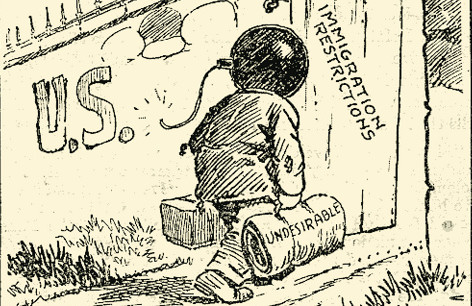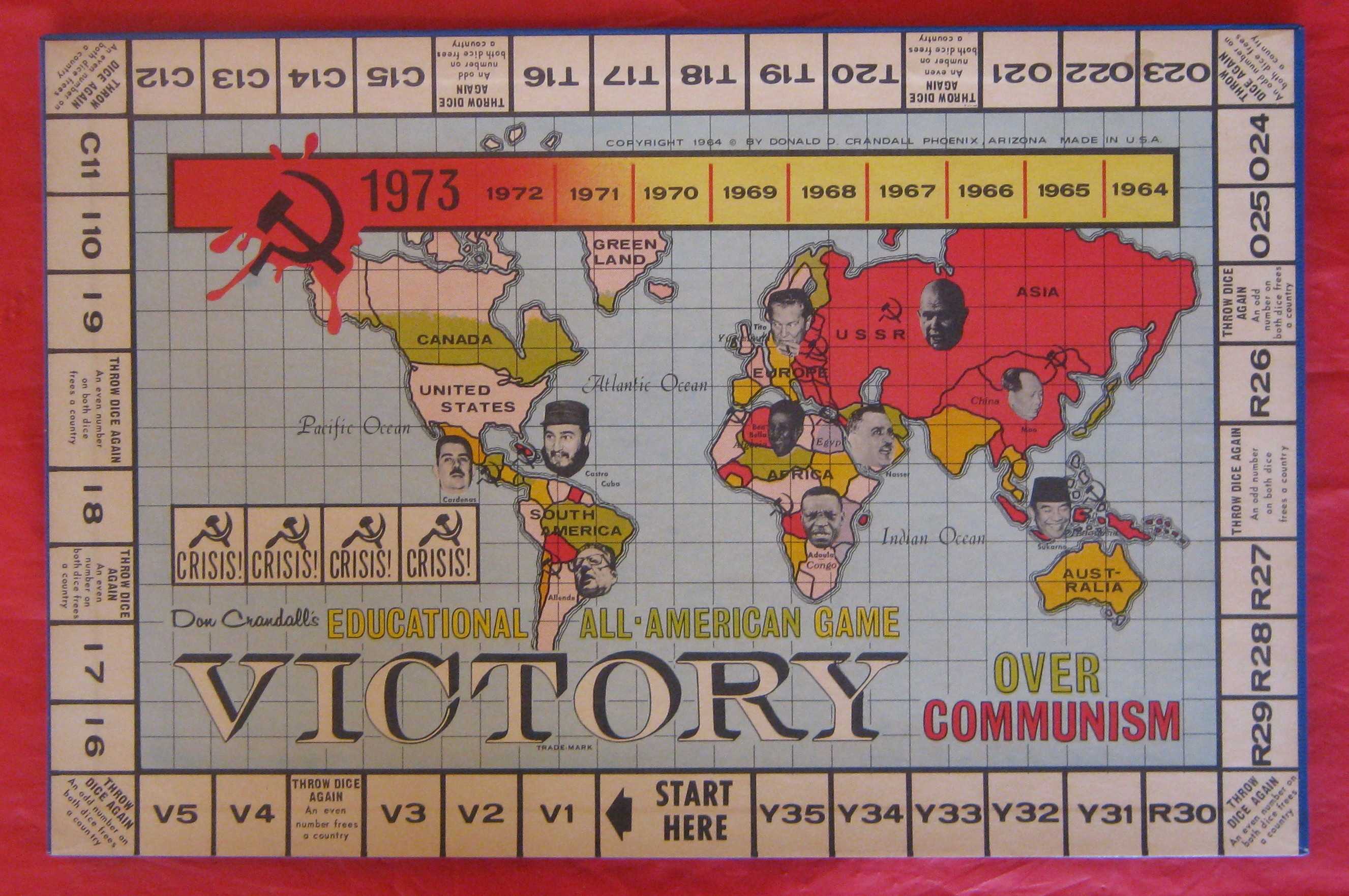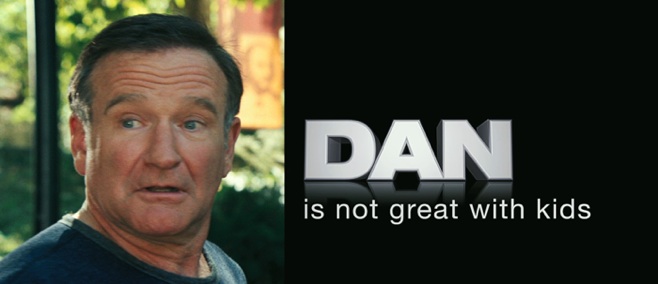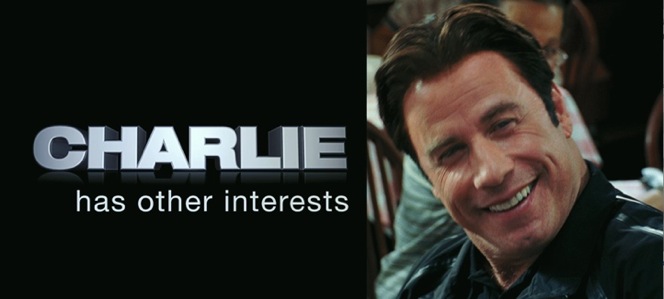




Worst Best Pictures
It seems everyone has a list of Best Picture snubs, especially around this time of year. Well, “everyone’ includes me, and so here is my list.
But first, a couple of clarifications:
First off, this list does not include movies that were not nominated. There have been countless injustices for Best Picture nominations (Babe and Apollo 13 nominated over The Usual Suspects???), but if I start listing movies never nominated the possibilities become TOO endless. Plus, I’m working on that list for a later entry.
Secondly, each movie needs a replacement from the list of those nominated for Best Picture—we just can’t say a particular year didn’t have a Best Picture that year. A Beautiful Mind was a lame-ass choice for Best Picture, but 2001 was a horrible year for movies. What would you have rather selected? Gosford Park? In The Bedroom? Not every year is going to be of 1939, 1976, 2005, or 2007 caliber.
And lastly, the disparity between the actual winner and the deserved winner must be significant enough to warrant attention. I think Shane is better than From Here to Eternity, but not enough to warrant making an issue out of it.
Okay, let’s get started.
AROUND THE WORLD IN 80 DAYS
I get it. It’s an epic film and it practically invented the concept of the cameo (“Wait a minute…that was Frank Sinatra. But he wasn’t listed as a star in this film!”).
But the film wasn’t that good. It was bloated, repetitious, and a bit racist. However, the real crime is that this film won…against Giant, The King and I, and The Ten Commandments. It’s like Sesame Street’s “One of these things just doesn’t belong here.” No real preference for me—I’ll take the field over 80 Days.
KRAMER VS. KRAMER
I get it. The Deer Hunter won the year before and you didn’t want back-to-back Vietnam movies winning Best Picture. You have the star power of Meryl Streep and Dustin Hoffman in an American Beauty parallel (some have said this is film was a continuation of The Graduate if Benjamin and Elaine had gotten married). Why wouldn’t this film win?
Two words: Apocalypse Now. Even the backstory is compelling—the monumental effort to bring the film to the screen (documented in the wonderful Heart of Darkness documentary) that included budget issues, a typhoon, and Martin Sheen having a heart attack. But forget all that – the movie itself is a masterpiece and anyone thinking this is a movie about Vietnam is sadly misinformed.
CHARIOTS OF FIRE
I get it. Following the personal struggles of two runners (one Jew, one Gentile), culminating in a single event to determine the winner…that’s based on a real story? That’s a guaranteed Oscar, as evidenced by its Oscar.
That said…Chariots of Fire: classic song…and that’s about it. It’s not even one of the top five sports movies ever made (none of which won Best Picture), let alone the best picture of the year. That honor, in 1981, should have gone to Raiders of the Lost Ark. Tell you what—instead of me doing all the work, why don’t you tell me why this shouldn’t have won. Oh, and you cannot hold the genre against it. Give up? Yeah, that’s probably a good idea.
A great action-adventure movie is like a great comedy—overlooked, derided, and incredibly rare. What was the last good action-adventure movie you saw? (if you even think Transformers 2 then you are no longer allowed to read this blog. Seriously.) Raiders of the Lost Ark was an absolute masterpiece, a relentless, thoughtful adventure that has never been equaled. Roger Ebert wrote this review of Raiders and, if it doesn’t sell you on the film’s greatness, nothing will.
SHAKESPEARE IN LOVE
I get it. Solid performances and a script laden with Shakespeare references. I mean, come on—it’s Shakespeare writing Romeo and Juliet WHILE HE’S LIVING IT! BOOM! Consider your mind blown.
Yeah, watch this one again sometime. Seriously. And while you’re watching, put a little Post-It® note on the TV so you can occasionally look over and be reminded that this was selected as the best movie of 1998. For added fun, count the number of times you say to yourself out loud, “Really?” My average is 17.
Saving Private Ryan was released in the summer, but that shouldn’t be held against it. Ryan is the Best Picture of 1998, and the only movie that was even close was Thin Red Line (slow but underrated). The first 20 minutes of Ryan are undisputed genius, the closest thing to wartime captured in the cinema (<sarcasm>except, of course, the gritty war epic The Green Berets</sarcasm>). The fact that the rest of the movie is pretty damn good (carried by wonderful casting) after the soldiers stormed the beach is nothing short of amazing.
FORREST GUMP
I get it. Cutting edge special effects (“Wait a minute…Forrest Gump never met the President!”), a heartwarming story, and an underrated performance by Tom Hanks (paving the way for actors to “never go full-retard”) combined to form a genuinely enjoyable movie.
The Best Picture award is not about an enjoyable movie—otherwise, Back to the Future would have swept the Oscars. Being Best Picture is about greatness, and there are few films (if any) greater than The Shawshank Redemption. There’s no way that Gump should have beaten Andy and the gang. None whatsoever. Shawshank is a gripping, powerful film about friendship, hope, and determination. Gump is a two-hour tribute to the self-importance of the Baby Boomer generation.
GLADIATOR
Notice how each one of these entries has a suggestion as to why a particular film could have feasibly been chosen? I would on this entry, but I have absolutely no idea what in the holy hell the Academy was thinking on this one. For reals.
Call me naïve, but the Best Picture should be something looked back upon as a timeless classic, something we can watch decades later and have it still move us,, affect us, or at least tell us something about that time period. I love Ridley Scott (literally!), but Gladiator was an above-average action film that never tried to be anything more. For gods sake, Scott actually forgot about the dog (named “Hell”) when he released the movie and had to throw him into some dvd alternate ending. For reals. The movie drags on for 30 minutes too long, the special effects are laughable (remember the tigers?), and the ending is preposterous (A slave fights the emperor in the Coliseum…TO THE DEATH!).
So what nominees instead? Traffic? Sure, that would have been better (almost anything would), but it never achieved its own lofty aspirations. Chocolat? Really? Erin Brockovich? Two hours of Julia Roberts playing a slightly louder version of every character she’s ever played? Sign me up!
No, the rightful winner of 2000 was a foreign film by the name of Crouching Tiger, Hidden Dragon. This is a film of unspeakable beauty and whose sweet, understated storylines (and acting) were astoundingly effective. In a year of boring and bland (did you see the list of nominees?), Crouching Tiger was something radically different. Characters were flying, balancing on trees, and sky-fighting somewhere other than the matrix. And, because of the film’s sincerity and intentions, people invested themselves in it. I watched this in a movie theater in Columbus and, apart from occasional (appropriate) laughter, the audience was absolutely mesmerized. And rightfully so.
HONORABLE MENTIONS:
Crash (2005): Over Brokeback Mountain? News flash: When you have a story where every plotline revolves around race, it’s just as bad as a movie that ignores race completely.
The Departed (2006): Over Letters from Iwo Jima? Were you that afraid Martin would never direct another movie? The Departed is a well-done film, but if we’re handing out Best Pictures then Heat and Collateral should be up in arms over this.
Ordinary People (1980): Over Raging Bull? This one doesn’t bother me as much as it bothers other people, but they definitely have a point.
My Fair Lady (1964): Over Dr. Strangelove? I realize the Academy would never risk selecting Kubrick’s masterpiece when a safer film was available, but this is probably the most vanilla victory ever.
Polling Health Care
A bit tardy, but a similar story appeared over a month ago on fivethirtyeight.com. Newsweek recently reported that respondents voice strong opposition to Obama’s healthcare plan…until they learn about the details.
This actually is similar to a fascinating book called Why Americans Hate Welfare by Martin Gilens. In it, Gilens finds that welfare is despised by many people in this country. To be honest, that’s not too surprising – on standard “feeling thermometer” tests (“On a scale of 1-100, with 1 being cold and 100 being hot, how do you feel about xxxxxxx group/person?”), the only people who who rate below those on welfare are “illegal immigrants.” For reals.
What is surprising is that Gilens found that, when welfare was broken down into its components, it received significant support from people surveyed (e.g., people who despised welfare were the same ones who would argue in the next breath that welfare and unemployment were necessary). It was an interesting disconnect, and one that Gilens (convincingly) explained was a result of racial prejudice. In other words, when respondents felt that the poor were Black, the prevailing attitude was that these were “undeserving poor’ who were unfairly leeching off of the government and taxpayers.
So why the disconnect? It’s a combination of the Democrats not properly conveying the message of healthcare and the Republicans contributing to the disinformation campaign. I’m still baffled as to why Obama just doesn’t hammer this “31 million people without healthcare.” Seriously. Drive that home. Get a bunch of people to do testimonial commercials, sell out and put helpless children up there…do whatever you need to do. At some level, Americans have to have some sort of compassion for something like this. If not, we’re worse off than I thought.
Secondly, we have the aptly-named Republican Noise Machine (though I would have gone with the catchier “Republican Constant Bitchfest,” but whatever) throwing out a steady stream of “blah blah socialism blah blah blah death panels blah OMGEE COMMUNISMS!!!11!!1!” Back in the day (when he was relevant), Rush Limbaugh was significantly better at driving down opponents’ poll numbers than raising those in his own party. This is more of the same.
Still, the fact that these ideas are still embraced is enough to make one hopeful about the entire process.
Dear Allen
Yesterday Jared’s in-laws sent him this video of this latest conservative malcontent in an effort to explain (and justify) to him how they feel
Since Jared’s too polite so send a response (actually, he’s probably composing one as I type), this is how I would have handled it:
Dear Allen,
Hey, I just watched your video on YouTube. I had some thoughts, if you’re interested. This is going to be lengthy, but rest assured that it won’t feel as long as that joke of a speech I just watched.
I disagreed with practically everything you said, but honestly the way you said it pissed me off the most. Was that speech written by a ninth grader? Honestly, replace “president” with “our school rivals” and it sounds like something you’d hear at a pep rally—a quickly-assembled, poorly-planned, sparsely-attended pep rally.
Let me recap your speech for you:
Something something incoherent point something something inaccurate description of the American revolution something something something failed comparison something something awkward personal anecdote something crazy-ass example something painfully awkward acknowledgement of armed forces something failed attempt to rally crowd. BEAT STATE!
It was painful. You try to compare this struggle to the Revolutionary War (did you get your information from a Mel Gibson movie?) to try to set-up your call to arms (literally) at the end. You offer what might be the vaguest, most generic critique that make Sarah Palin look like a keen political mind (lower taxes, cut spending, create jobs, change this country’s attitude!), like you were afraid of offending any one of your potential voters. Then you build your case by making a comparison to someone who “won’t be paying for gas under Obama.” Hey, I can generalize to a larger population based on one person too! Timothy McVeigh had ultra-strong right wing beliefs. That means all Republicans love blowing up children in nurseries! Wheeee, what fun!
Oh, and great timing, Allen. Way to speak out now. You know why you didn’t “go down and tell my children that I didn’t have the courage, the commitment, the conviction, or the character to fight for this country” Allen? Because you were too busy going down on George W. Bush for the last eight frickin’ years.
What has Barack Obama done to upset you so much that it prompted you to spend 13 whole minutes writing that speech? Was it the fact that he’s trying to provide healthcare for everyone? Was it when he lifted the ban on stem cell research? Tried to salvage relationships with other leaders from around the world?
You want to talk about “freedom” and “liberty,” where have you been for the last eight years, you ignorant asshole? Where were you when Bush passed the Patriot Act and made warrantless wiretaps and rendition not only legal, but also acceptable? When Bush invaded Iraq and got thousands of Americans killed for phantom WMDs? When Bush used cronyism to erode our government, causing us to be unprepared for natural disasters like Hurricane Katrina? The first bailout? The second one? Where were you, you selfish hypocritical sonofabitch? Oh, it was okay then, because politics is just like a sports game and you want your “team” to win, even if that means the downfall of this country.
Oh, and my favorite part of your speech? That “bayonet” bullshit at the end. What does that even mean? THAT was your solution??? Like so many other people in your rapidly-shrinking base, all you can do is bitch. Bitch, bitch, bitch, bitch, BITCH. You don’t want universal healthcare? How about providing a viable alternative, something other than the typical Republican wet dream of building a time machine to transport back to the halcyon days of the 1950s, where it was all bobby-sox and malt shops. Actually, Allen, if you opened your history book past the 1700s, you might be disappointed to find out where you end up in that Republican paradise.
But I digress. Seriously, do something other than complain. If you’re a member of the opposition party, you have to do something other than saying “Nuh-UH!” That way lies madness and, I think, a Monty Python sketch. How about you go back to your room, get out your crayons, and come back to the grown-up table when you want to have a real conversation.
Lastly, I want to be extremely honest with you, Allen. You’re not a viable candidate. You’re an amateur pundit, leeching off the populist emotions and catering to the lowest common denominator while clinging to the fading hope of staying relevant. At least the talking heads on Fox News get paid to spew their manufactured outrage. You’re just some dupe who’s working pro bono to put the next Republican into office. And it’s not going to be you. You’re doomed to live forever in obscurity, every once in a while opening up your pathetic YouTube clip, staring at the stagnant view count, and wondering what could have been while knowing, deep down, that you never had a shot.
Best,
Josh Grimm
Are You My Mother?
How I Met Your Mother is one of the best shows on television right now and, in a television landscape where the elite are defined by dramas (Mad Men, Dexter, LOST, Friday Night Lights…), the fact that HIMYM is still among the top shows (with a laugh track no less!) is nothing short of incredible. Its wonderful writing, unique story-telling methods, and pitch-perfect actors combine to form a show with genuine laughs, characters, and human moments. Its Arrested Development meets Friends, and I can’t get enough of it.
This season has been utterly fantastic, with only a few episodes approaching subpar for the series. It’s also advanced the plot of Ted Mosby actually finding his mother more than the other four seasons combined. Message boards across the Information Superhighway® featured a number of users who were positive that the anonymous mother was Rachel Bilson (who would have made an excellent choice) but, as we saw this week, the ex-OC-star was a red herring. The mother’s identity remains a mystery.
Figuring out this mystery is not an easy thing to do. At this point, the choice has to be perfect. Think about it: Ted Mosby has dated Robin Scherbatsky (Cobie Smulders) and Stella Zinman (Sarah Chalke), and even briefly courted Amy Adams (the one who made Enchanted halfway bearable), yet none of those worked out. So it has to be someone better than Robin, an amazingly awesome character who (despite the first episode) we all assumed was the one, better than Amy Adams, who continually dazzles critics and is often singled out from asstastic movies as the one shining point, and better than Stella, who starred on Scrubs as Elliot (who was arguably the most perfect combination of smart, funny, sexy, and vulnerable ever to appear on TV).
So, what are the qualifications? Well, the actress who ultimately plays the mother has to be:
1) Someone recognizable. After the recent guests and the shows popularity, the days of Victoria from Season 1 are long gone.
2) Someone already likable. Similar to the first requirement, the actress has to be someone well-liked by TV audiences. After Robin and Ted broke up, I was disappointed and ready to attack the next girl who Ted dared to date; after all, how could she compare to Robin?? But then Sarah Chalke appeared and all was forgiven. She carried the likability from her (ongoing) stint as Elliot on Scrubs onto the show, and it worked wonders. There was no need for writers to try to make her uber-awesome or ideal – she had been doing that for seven years already.
3) Someone the right age (Ted Mosby just turned 30). This seems fairly obvious, but it does make the search that much more difficult. Sophie Marceau is amazing, but she’s also out of the age range. On the other edge of the spectrum, Keira Knightley might pass the “half your age +7” rule, but her dating Ted would be all kinds of creepers.
As you can see, this is not an easy decision. But it’s one that I wanted to figure out, with the help of Jay-Jay Trubs. Here are some possibilities:
Natalie Portman
Why it might be her: Ummmm…It’s Natalie Portman and she’s perfect. *shakes head*
Why it’s probably not: It might be hard for her to jump from film to TV, especially if it’s something other than a small (near-cameo) role.
Jessica Alba
Why it might be her: Jessica Alba is hot (especially Into the Blue Jessica Alba. Yeah, that’s right, I watched the movie. I even own it! BAM!). Plus she made a foray into TV on The Office (another great show) and could probably use a break from filming a Meet the Fockers sequel. For reals.
Why it’s probably not: Jessica Alba is not the shiniest coin in the fountain and makes Hayden Christensen’s acting seem decent by comparison. She’s got nothing to offer HIMYM but looks, and there are plenty of actresses who can do more. I mean, if we’re going on hotness, why not just get that girl from Time Crimes. Oh yeah, and one more thing: Jessica Alba is not funny. She’s a beautiful woman who has been told that she is funny, which is all kinds of worse.
Mila Kunis
Why it might be her: Mila Kunis is (obviously) attractive, but she’s also hilarious. She was wonderful in Forgetting Sarah Marshall (which also starred Jason Segel), she’s the right age, and would make an ideal choice…with one possible exception.
Why it might not be her: Kunis was wonderful as Rachel Jansen in Sarah Marshall, but most people still remember her as Jackie from That 70s Show. Rachel was awesome, Jackie was annoying. That would probably be the only hesitation (other than scheduling conflicts).
Those actresses definitely all have potential. However, they didn’t make the cut.
As near as Jared and I can figure (after much discussion and debate), there are two finalists who would be fantastic:
Kristen Bell
Why it could easily be her: Kristen Bell was also in Forgetting Sarah Marshall, and she was also hilarious. She is beautiful, has great comedic timing, and was born in 1980. Jackpot!
The other one (and my personal favorite):
Isla Fisher
Why it could easily be her: She’s a cutie and, while she was great in Wedding Crashers (her breakout role) she was also wonderful in The Lookout (talk about underrated film!). HIMYM has had its share of dramatic moments, and someone like Fisher would have no problem playing an actual character rather than a face that appears for the first time on the final episode of the series. She’s funny, genuine, and has just enough of a low profile to be a wonderful unexpected surprise.
Much like Lily’s “front porch test,” I could easily see her with the rest of the gang at McLaren’s. I hope it’s Fisher, but knowing HIMYM it will probably be someone I’ve never even considered…and who’s better than I could have ever imagined.
Default Now!
The New York Times had an interesting article entitled “Walk Away From Your Mortgage.” In it, reporter Roger Lowenstein discussed a new phenomenon: homeowners who were voluntarily defaulting on their housing loans. Yes, voluntarily – it’s not a result of an immediate financial crisis or emergency of some sort, they don’t want to pay, so they don’t.
The same phenomenon was discussed by Megan McArdle in The Atlantic, but in the opinion piece “A New Breed of Deadbeats.” It’s pretty clear to see where she falls on the issue.
McArdle discusses the issue from a moral standpoint. She acknowledges that a vast majority of foreclosures are from people who cannot possibly pay the mortgage and therefore have no other choice to default. However, she argues that a growing number of people are trying to game the system by simply walking away from the mortgage because they owe more than the house is worth (especially after the housing market collapse on the cusp of the recession that Dennis Haysbert keeps talking about). She calls these people “morally appalling” and points out that there are a “sizable” number of people who are okay with this practice.
At first glimpse, it’s hard to see why. After all, a contract is a contract, and by voluntarily walking away from something like that while others are struggling to hang onto their homes is appalling. Or at least I thought so.
Lowenstein’s article in the Times was an interesting one in that it explained how corporations do this kind of thing “routinely.” The example given is of executives at Morgan Stanley deciding to stop making payments on a group of San Francisco office buildings (as a result of the plunging values of the buildings). Lowenstein writes, “Nobody has said Morgan Stanley is immoral – perhaps because no one assumed it was moral to begin with.” And yet, individuals are held to a morality code that doesn’t exist for businesses.
And so goes the debate. Why should homeowners not take advantage of strategic defaults when corporations have no such qualms? Of course there will be consequences (largely financial), but the disconnect remains: it’s the difference between a business decision and a moral one.
I’m honestly still divided on these so-called strategic defaults. In my ideal world, if homeowners are somehow morally obligated to hold onto (and eventually pay off) their mortgages, then no double-standard should exist. Lenders should be obligated (morally, legally, whatever) to renegotiate those mortgages if the country’s financial situation changes significantly.
But something tells me that’s not going to happen.
Best Worst Movie
Three years ago, my former roommate (and current cousin) decided to hold a movie competition. We got together, ordered pizza, and each watched our submissions. Jake’s was Gymkata, a film filled with combat so bizarre that Cracked actually featured it as the best fighting style “too awesome to actually exist.” Mine was Dracula 3000, featuring Casper “Hard Jaw” Van Dien, the long-lost Coolio, and one of the most bizarre endings in movie history. This was followed by much Patron, drunk dialing, and even drunker karaoke, and by the end of the night I was the winner. I had found that year’s best worst movie.
When asked what makes a great movie, legendary director Howard Hawks said, “Three good scenes and no bad ones.” If you think of the great films out there, Hawks is surprisingly spot-on. Unfortunately, it’s easier to find a great movie than a great bad movie.
The trick is that the bad movie has to be enjoyably bad, not just bad (like I’ve talked about scary movies). As wisely discussed on the fantastic How I Met Your Mother, when people think of the worst movie ever there are two main camps: Plan 9 from Outer Space and Manos, the Hands of Fate. Both groups have great arguments, but no consensus is ever made because they are talking past one another. Watch either one a few times (without help from the MST3K crew) and it’s clear that both movies are horrible. However, Manos is painfully bad – the plot is painful, the dubbing is like watching a foreign film without subtitles, and the film itself doesn’t seem to know what it wants to do. Plan 9, on the other hand, is the best worst movie because, at some level, it’s actually enjoyable. It’s got heart. Ed Wood was clearly going for something – he just took Suck Ave. to get there. The effects are hilarious, not pathetic. The acting is poor, but earnest. The plot is ridiculous, not stupid. And as a result, the film provides an opportunity for others to mock it (in a non-resentful way).
Jake and I tend to lean more toward the Plan 9 format. So, for our annual competition, the bad movie has to be enjoyable (e.g., Commando (which I argue is the best worst movie ever made) or Death Wish 3). As an extra twist, the movie also has to feature at least one recognizable actor/actress.
My entry this year was Mega Shark vs. Giant Octopus, which is a gut-wrenching tale of a mega shark fighting a giant octopus. For reals! Obviously, there’s a lot more to it than that. I mean…there’s the…ummmm…I mentioned the shark, right? And the octopus? Yeah…that’s about it. Think of it like Boa vs. Python, but instead of a boa and a python, it’s an overgrown shark and a huge octopus. Awesome!
Needless to say, it’s a great bad film. It features, among other things, the giant octopus swatting a helicopter out of the air using a tentacle and it even has the mega shark attacking the Golden Gate bridge. For reals!
And, for an extra bonus, it has one of the most ridiculously awesome scenes in the history of cinema. Check it out, you won’t be disappointed:
All kinds of craziness. Throw in the odd performance of Lorenzo Lamas and the romance between characters (featuring the most erotic scene since Leslie Bibb and Joshua Jackson showered together in Skulls), and I thought I had victory all but guaranteed.
Unfortunately, it was not meant to be. While Jake was blown away by the aforementioned ridiculous scene (he just stared at me in disbelief and said, “Are you going to win again this year, you SOB?”), the movie’s ridiculousness peaked too early (that scene was within the first half-hour), and so it didn’t have the impact of my epic victory from last year: Shark Attack 3: Megalodon.
It didn’t help that Jake’s film was Howling III: The Marsupials, which was hilariously bad. Granted, it didn’t feature a recognizable actor, but that was because last year my entry didn’t contain a recognizable actor (though I maintain that the actor Ryan Cutrona was recognizable, given that he was Betty Draper’s father in Mad Men, and was also in Changeling, 24, and a commercial for Cancun). This is an ongoing feud, as it was my response to the first year when Jake said his recognizable actor in Gymkata was that the film was directed by “the director who also directed Enter the Dragon.” Nice try, jackass.
IRregardless, next year we’re back on track with actor name-recognition and bad movie hilarity. One year to find the next best worst movie. I had better get started.
Stupid Playoff
It’s nearing the end of the bowl season that means everyone has a brief, precious amount of time left to complain about how college football should have a playoff system. It’s a popular sentiment and simply bringing up the BCS (more like the BS SYSTEM!!!11!!1!!!) is all but guaranteed to get plenty of irate posts. I’d love to write a piece bashing the BCS Bowl SHAM-pionship series (Zing!), but I can’t; I am one of the very few people who are publicly against a playoff.
A few of us exist. Tony Barnhart dismisses polls that show support for a playoff because those polls are too vague to actually mean anything (a good lesson for any methodology course). Stewart Mandel wisely supports a “+1” format. Even my man Pete Fiutak (hands down the best college football analyst online) has expressed unease about a playoff (though he does push for an 8-team design which seems feasible, especially when compared with the 64 team playoff (!) proposed by CBS writer Darin Darst). But for the most part, it’s easier to trash the BCS.
I could go on and on about how unique college football is. It’s a bullshit talking point, but it still has some merit: The entire college football season is a playoff. Right now I’m sickened by the talk about NFL teams who have clinched the playoff berth resting players for the final game or two of the regular season (just ask the Colts fans how that felt last week). It’s absolute bullshit and I fear it would absolutely happen in college football.
People point to the Urban Meyer/Nick Saban types who strive for perfection (no one else strives, apparently), who would want an undefeated record (much like Tim Tebow wanted this season). But the most important thing in football is winning the championship. In the NFL, no one gives a shit that New England went undefeated with one notable exception – the Giants won the Superbowl. And that’s in the NFL. In college football, an undefeated season is far from rare. In the past 20 years, there have been 22 teams who have gone undefeated. Any coach would gladly sit his starters if a college playoff spot was guaranteed, especially if players are a little dinged up.
Of course, for the first year or two, rivalries would remain upheld and announcers would pontificate about the importance of tradition in college football. However, in a world of multi-million dollar contracts, it wouldn’t be long before some coach under pressure to perform well in the playoffs decided to rest his players. Any modicum of success would be met with imitation. And suddenly the college football regular season is as boring as the college basketball regular season.
Right now the source of the excitement is watching other teams fail. I watch as much college football as I possibly can, but what really holds my attention are the upsets. USC getting the shit kicked out of it by the (at the time) unranked Oregon Ducks was fascinating because a Trojan loss all but guaranteed they would be out of the BCS picture and stuck in a lame-ass bowl game (done and done). Watching LSU lose, or Michigan or USC or Virginia Tech or Michigan or Texas or Michigan or Les Miles or Miami lose is fine and enjoyable, but watching one of those teams lose where there are serious repercussions is must-see TV. Is the Cincinnati/Pittsburgh game as exciting if the Bearcats are guaranteed a spot in a playoff? What about Nebraska/Texas?
Scrap the idea of a college football playoff and…listen closely…FIX. THE. BCS. Don’t just trash it – fix it.
By far, by FAR the worst component in the current BCS system is the human element. The polls are just awful (especially the coaches poll). For evidence, look no further than the Capital One Bowl. This year featured Penn State and LSU (ranked number 13 and 12, respectively, at the end of the season). But did either team belong? Penn State’s best win, best win, was over Minnesota. That’s rough, but it’s nothing compared to LSU, whose best games were losses to Florida and Alabama. But because their preseason rankings were so high (Penn State started off the season at #8, LSU at #11), these two were bound to end up at the top.
How do we fix this? Actually Kirk Herbstreit suggested this years ago on College Gameday: Create a panel of people who are required to watch every game every weekend. Sit them in a room with comfortable chairs and excellent food, and make sure they watch every single minute of every single game. Make sure they’re moving teams around early in the season (a la the genius of Doug Lesmerises) so that no one is guaranteed a top spot because they looked good in a bowl game 9 months earlier.
I would also love to see written decisions, like Supreme Court justices. Maybe not one for every team, but if there is a particularly controversial ranking (or if there is a close vote) the winning side would write (anonymously) why a certain team deserved a certain ranking.
I also am a firm believer in the “plus one” format, again using the same criteria as before (with the panel meeting to discuss the major bowl games to determine who deserves to challenge for the national championship).
It’s manageable, it’s something that can be adjusted if there are still issues, and it’s nothing as drastic (and overly simplistic) as the playoff cure-all.
Coach MacArthur
Mike Leach may like to think of himself as a pirate, but during this entire fiasco I could only think of him as Douglas MacArthur.
To recap: Less than a week ago, Texas Tech football coach Mike Leach came under fire for mistreating one of his players – a wide receiver named Adam James (son of ESPN analyst Craig James). According to the accusations, Leach twice placed Adam James in a darkened shed after learning that the receiver had suffered a minor concussion. Leach was immediately suspended for his actions and, after filing a restraining order against Texas Tech University (so that he could coach in the Alamo Bowl), he was fired the next day.
Lubbock erupted. Insightful commentary (like this great piece by Jon Arnold) was rare. Leach is something of a deity down here and, to be honest, I don’t totally get it. Granted, I’m spoiled because I grew up as an Ohio State Buckeye fan, but to the outsider he’s a colorful, unique character who was good for an upset every now and then (and an inexcusable loss much more frequently). I personally didn’t care for him because I like defense, he only scheduled non-conference cupcakes to pad his numbers, and because he had Lubbock media absolutely cornered (and was a dick about it). But down here Leach was someone who brought prominence to the Red Raider football program. When the administration fired Leach, Hance and friends made a number of enemies.
Tons of keyboard commandos announced that they would be tearing up their bowl tickets (ummmm…you know you already paid for those, right?), not buying season tickets, and never donating to Texas Tech again (including one anonymous individual who gave “thousands” every year). ESPN radio programming was cancelled to allow more time for disgruntled fans to air their grievances on local talk shows. The angst was palpable, and it only grew when Leach gave a 34-minute interview to Rece Davis, during which Leach blasted both Craig and Adam James and the Tech administration.
Leach’s comments read like a list of talking points guaranteed to fire up a fan base in America. Craig James was a helicopter parent who hovered around, disrupting practices and trying to get his son more playing time. Adam James was privileged, acted entitled, and was lazy. Way to go, Leach – you should also talk about how he’s married to a welfare queen and has abortions for fun! Of course, those posting online used this as an homophobic argument for the wussification of the United States. Adam James is a coward!!11!!1!!one!! A real man would shake it off and punch the concussion out of his own head!!1!11!! Hell, James probably puts on Barry Manilow’s greatest hits, makes out with a line of dudes in his finest lace thong and then hands them all participation trophies!!!!
But I digest. Back to my comparison.
Airwaves and internet tubes are still flooded with arguments in support of Leach (with a number of amateur doctors explaining the nuance of a concussion) and few can believe he was fired for having (Adam) James placed in a shed.
That’s not why Leach was fired. Leach was fired because he was arrogant and stubborn and disobeyed his bosses. Period. General Douglas MacArthur was a hero on the rise (for a fascinating book about the man, check out William Manchester’s American Caesar) and enjoyed tremendous public support, especially after the daring Incheon Landing during the Korean War. Then, MacArthur decided to ignore Vizzini’s advice of the classic blunder…to the EXTREME (50s-style)! Sure, anyone can be involved in a land war with Asia, but MacArthur channeled his inner Max Power by basically invading China and almost starting a war. Against President Truman’s direct orders. Whoops. He’s lucky Truman didn’t nuke him.
That’s basically what happened here. Leach could have signed the apology letter to James (most likely a form letter to cover their collective legal asses), he could have explained his situation better, or he could have asked the administration for help (or forgiveness). Leach decided to go it alone, figuring that his tremendous popularity (and his own brilliance) would make him indispensable. As evidenced by MacArthur fading away, Leach was mistaken.
So stop complaining about James, stop pretending that Leach is a genius for being a pioneer in the field of concussion treatments, and just focus on the fact that Leach pissed off his bosses one too many times. It was completely preventable at a number of places, but Leach was too stubborn to take any of those offered exits. It was his fault that he’s gone.
Take solace in the fact that Leach wasn’t that great. Seriously, he wasn’t. Texas Tech was 8-4 this year, with a good win over Nebraska (who was struggling at the time) and a decent win over a drowning Oklahoma team. Last year’s victory over Texas was, without a doubt, the best game of the year (and made college football in October and November fun instead of this year’s plodding march toward predictable), but Texas Tech lost to Oklahoma by 44 points (and it wasn’t as close as the score made it seem) and choked in the Cotton Bowl against Ole Miss. More importantly, Leach went after the Miami and Washington jobs when they were on the table, and was a leading candidate for the Auburn position – he wasn’t going to be around forever, and as has been shown over and over again, Texas Tech has gone as far as it can with him.
You want to go further in the Big 12 and even nationally? Stop screwing around with half-ass replacements like former assistants or promoting in-house. Tommy Tuberville is the answer. He has expressed an interest, so bring him in. And hire him. He should have played for the championship in 2003 (13-0), has Texas ties (he was an assistant at UT), has coached almost 20 players into the NFL, and was a terror in the SEC. Throw a ton of money at Tuberville and watch the program soar. As for Leach, his spirit and support in Lubbock may never die…but it will definitely fade away.
Underrated: Pitch Black
Forgive the lengthy introduction, but this is not the first of these entries I hope to make.
Good science fiction is tough to track down these days. You have horror movies trying to be science fiction (and failing at both), which results in The Happening (only tolerable if you watch with Rifftrax), superhero movies trying to be science fiction (sorry, Will, but Hancock was rough), and science fiction that we all wish wasn’t science fiction (I dare you watch Hayden Christensen in Jumper. Seriously. I dare you.).
Some science fiction tempts you by starting out strong; Event Horizon had great potential and Sunshine was gearing up to be one of the best science fiction films ever made until the last 20 minutes (imagine Episode I disappointment without the suck). And then there are some science fiction films that approach perfection for the entire length of the film and receive the critical praise they so richly deserve (WALL-E and District 9 immediately come to mind).
But this entry is about underrated movies, and I’ve selected to highlight a little film released in 2000 called Pitch Black, the story of a group of passengers marooned on a planet where they struggle to survive on a sun-scorched world. Featuring Vin Diesel, the movie was met with indifference: $39 million at the domestic box office and 36% approval with the Cream of the Crop. The effects are a little dated, no one threatened to sweep the Oscars with their performances, and you won’t find this film on any Top 10 lists.
So what’s to like? What makes this movie so underrated?
THE ACTORS.
With the possible exception of Vin Diesel, no actor or actress stands out in this movie. And, when it comes to science fiction and horror, that can be a good thing. Quick, name me an actor not named Wilford or Kurt in The Thing. Someone not named Sigourney from Alien? Hell, name one actress from The Descent.
A strong story negates the need for a strong performance—everyone just needs to do his/her job. Pitch Black is no different. Because no one takes it over the top, the cast fuses into a plot delivery device that is neither memorable for being good…or for being bad. As a result, the actors disappear and the characters emerge; characters without boisterous secrets or petty dramas, but with personal issues they prefer not be made public. They react to the situation, not the script, and don’t bore us with their petty problems. It is refreshing.
THE PLANET
By far the strength of this movie, the ship crashes on a (seemingly) deserted planet. But this isn’t like most films where the surface is surprisingly like earth except with a slightly higher Nitrogen count or whatever. This is a truly alien landscape, complete with three suns, no water or plant life, and a ringed planet on the horizon. To quote one Ted Mosby, it is hauntingly beautiful, without some bullshit oasis or friendly humanoids to help these survivors out of their bind. There’s only a colony, long-deserted (though not voluntarily).
THE ANIMALS
There are no flora, but plenty of fauna on this seemingly lifeless planet; this ultimately serves as the threat to the population. In a precursor to Peter Jackson’s epic King Kong remake, the creatures themselves have clearly evolved. It’s not one dominant life form, but multiple forms on different parts of the planet. There are the slugs donning exoskeletons and a phosphorescent glow nestled safe in the ground.
The winged, blue-blooded creatures who rule the skies, fighting one another after they’ve run out of torsos:
And the monsters who stalk above the ground, seared by light but immune to everything else (except for Vin, of course).
There is even evidence of other creatures who were clearly not fit to survive long-term on the surface, with huge, hulking skeletons bleached by the suns as a reminder of their downfall due to docility.
And, best of all, this is all information that we gathered as audience members. There isn’t some scientist who’s studied these beasts, some survivor who learned how these brutes think. It’s purely visual evidence, giving us the freedom to construct our own narratives. Subtlety and imagination triumph—Michael Bay fans need not apply.
THE TENSION
Finally, some real tension. Without the stock characters that plague these monster movies, survival becomes a genuine uncertainty. The monsters remain in the dark, where our minds can create far scarier demons than any CGI bullshit. Instead of looking for flaws, we can focus on how the scene unfolds; we replace skepticism with escapism, something that is sorely lacking in most modern horror movies.
Pitch Black won’t change your life and you might not even want to recommend it to your friends. But Netflix it and you just might be pleasantly surprised.
No Tebow
Thankfully, Tim Tebow’s run at the Heisman ended against a wall that is the Alabama defense in which the overhyped, presumed national champion Florida Gators were exposed.
However, my argument isn’t that he shouldn’t win the Heisman. My argument is that he never belonged among the finalists in the first place. It’s a travesty that he’s still being mentioned in the same breath as the 2009 Heisman trophy.
So why shouldn’t he win it?
LET’S TALK CAREER.
Tebow’s career stats are impressive: SEC records for rushing touchdowns and total touchdowns, ridiculously high passer rating, and three national titles.
That’s fine and dandy, but most of those numbers are meaningless this year. It’s painfully obvious why there is a clamor for Tebow to win. He is widely acknowledged to be one of the greatest college football players of all time. Therefore, it seems obvious that the easiest way to demonstrate this achievement would be to be only the second player to win two Heisman trophies. However, while he (sort of) had a case last year, this isn’t it. The Heisman trophy is not a Lifetime Achievement Award, and shouldn’t be handed out because an individual should have won one earlier (e.g., Denzel Washington’s Oscar for Training Day) or because that person deserves something for all their accomplishments (to stick with the Oscar motif, let’s go with Gregory Peck and Al Pacino). Tebow’s past is irrelevant, so let’s not talk about all that he’s meant to college football.
LET’S TALK LEADERSHIP.
Let’s not.
This “intangible” is so incredibly stupid that I can’t believe commentators even mention it, let alone dwell on it. Spoiler alert: Practically every veteran quarterback in college football has strong leadership qualities. Do you think McCoy or Bradford or Kellen Moore or Jake Locker or Darryl Clark or practically any other quarterback at a D-1 school doesn’t lead his team and desperately want to win? Suggesting that Tebow is somehow a “better” leader just because he’s a more visible leader doesn’t make him superior to other quarterbacks, especially not at any significant level that would place him above other players.
His intangibles and his past are meaningless, so only one thing matters: His performance.
LET’S TALK NUMBERS.
When Case Keenum puts up utterly ungodly numbers, he’s dismissed as a “system quarterback.” The same was true last year of Graham Harrell, Texas Tech’s quarterback, and has been an clear concern ever since Andre Ware (system quarterback and horrible announcer extraordinaire) won the Heisman in 1989. And, to an extent, I agree with this; most quarterbacks would put up ridonkulous stats if they were making 50-60 throws per game. That said, these numbers cannot be ignored, especially considering that it was ridiculous numbers that got Tebow the Heisman his sophomore year.
Here’s the thing: Running the spread offense Tebow still put up average numbers, only throwing for over two hundred yards in six games and accounting for less than two hundred yards in three games. Given that the spread allows quarterbacks to jack up their numbers through short passes and bubble screens in lieu of a dominant running game, this is disturbing. Looking at his stats, which should be assisted by the offense that the Gators run, he is still embarrassingly average.
Still, the Heisman is all about the big games. What about those “tough” games against opponents that were good (or at least assumed to be at the time)? Tebow did not have his best games. He threw for 164 yards against “rival” Georgia (rushing for 85 more). The game against Tennessee and Lane Kiffin, who had been talking trash to Florida all summer? Tebow threw for 114 yards and rushed for 76 (on 24 carries). LSU? Tebow threw for 134 yards and rushed for 38 (on 17 carries). Keep in mind that this year was an awful one for the SEC, with two top-ranked teams and a bunch of mediocre pretenders. It’s like the PAC-10 normally looks, and Tebow still failed to dominate.
His “statement game” that was solidifying his Heisman candidacy was a game against Florida State. Florida State. I’m serious.
This might have been one hell of an accomplishment a decade ago, but right now…not so much. When the Gators played Florida State, the Seminoles were ranked “92nd or worse in every key defensive category.” That would put them in-between Hawaii and Colorado State. Good work, Tim– definitely something to brag about. But people still do, pointing to the fact that he has one of the highest passing ratings in college football.
Tim Tebow is one of the most accurate passers in college football history, something that is often touted when talking about his skills. The worst part is that his passing stats (which (again) are not that good) are grossly inflated because of the offense that he runs. Therein lies the double standard – quarterbacks that put up ridiculous numbers in other systems are attacked, but Florida’s system is ignored. Again, it’s not the same as Houston or Texas Tech, but it’s a system nonetheless. He’s running the spread, and that affects his numbers significantly.
Currently, Tim Tebow sits at #8 with a rating of 155.6. And, again, his stats are not that good. Why? Because of a little thing called YAC, which announcers trip one another while trying to be the first to say that it stands for “Yards After Catch.” Suddenly all those bubble screens, swing passes, and shovel passes look less impressive because the receiver is doing all the work.
Unfortunately, YAC stats do not exist for college football. You’d have to find some whackjob who would be willing to jot down the length of the pass for every throw the quarterback makes.
Guess what. You found that whackjob. I did just that for yesterday’s wonderful SEC Championship game.
Now, obviously, this was against Alabama’s wonderful defense, and that definitely affects Tebow’s numbers. But this isn’t about his passing yardage total; I’m only trying to demonstrate the types of passes Tebow makes. Also, obviously, this is one game and cannot be generalized to the entire season. I’m hoping only to draw attention to the kind of offense being run.
I should also mention that a few of these might be off by a yard or two – I used Tivo whenever possible but, at the end of the day, I’m a college football junkie and I was watching the game.
Of Tim Tebow’s 20 completions, 14 (!) of those throws were for four yards or less, and nine of those 14 passes were throws for two yards or less. The receiver takes care of the rest, with roughly 85 yards off of those 14 catches (about six yards a catch). Tebow had one completion where the pass itself was 30 yards; the other five completions were all throws that were 10 yards or less (including the 10-yard throw to Hernandez that resulted in a 59 yard gain to set up Tebow’s interception).
Keep in mind that Alabama’s defense was stifling and the players were clearly prepared for swing passes and shovel passes, and so you have to assume that Florida altered its game plan away from the short throws to try to stretch the field. This lone game is far from conclusive, but it definitely supports a suspicion that Florida’s system is not that far removed from Mike Leach’s offense.
So, no, Tebow’s numbers do not get him into the Heisman discussion. Nor does anything else. Send Mark Ingram, especially after his monster SEC Championship game. Send Toby Gerhart, who has had an unbelievable year (over 1700 yards and he still averaged at least 4.4 yards a carry in each of Stanford’s losses). Send anyone. Just make sure they deserve it.
I Want This
Red Nightmare is a short propaganda film about Jerry, a man who takes living in the United States for granted (he even lied about his wife’s parents coming to town so that he wouldn’t have to go to a union meeting!!1!!one!!!). Dragnet superstar (and Red-hater extraordinaire) Jack Webb has decided to teach Jerry a lesson, and so Webb decided to give Jerry a Red nightmare (just like the title!). Jerry wakes up in an alternate reality where the U.S. is run by Commies. There is no such thing as church, the State comes and takes his daughter off to a Commie work farm, and (what finally pushes Jerry over the edge) the Reds have even claimed that they invented the telephone. Bastards! Watch this film in its entirety here, if only for the beginning (the Commie training camp) and the end (when Jerry loses it).
When Mr. Ken Conaway showed this to my high school history class, I became fascinated by anti-communist propaganda from the 1950s and 1960s. I immediately decided to start collecting anti-communist propaganda. I’ve bought a few movies (including shorts and instructional films) from the era, and a number of my monster movies feature creatures who represent clear warnings about the dangers of communism (I’m looking at you Them! and The Blob). Alas, that’s about it, mostly due to the TA salary the past six years.
That said, when I do start my collection in earnest, I want my first item to be a board game called “Victory Over Communism.” Listen to this description from boardgamegeek.com:
“Players are given cards containing questions and answers about communism. Every correct answer gets a player a Slave Country card, which frees that country from Communism. Every wrong answer brings the players one year closer to 1973, the year the rules quote as when the Communists will meet their goal of world domination.”
The questions the players have to answer are far from unbiased. Here are a couple from the playing cards (with answers):
QUESTION: Is the “cold” war a real war? ANSWER: Yes, the “cold” war is a very real war. It has enslaved more people than any “hot” war in history.
QUESTION: How much less per bushel did the United States government sell wheat to our enemy, the Communists, than to the baker who bakes your bread here in America? ANSWER: The enemy, the Communists, bought wheat from the United States for 62 cents less per bushel than your baker pays for it right here in America.
QUESTION: What would have happened to anyone who suggested sending food or military goods to Nazi Germany during World War II? ANSWER: Anyone who suggested sending food or other goods to an enemy would have been tried for “treason” or carted off to a mental institution.
Here are a few more images:
I can’t find this anywhere online for sale, but someday I’ll track it down and I will rescue the enslaved Communist countries, Jack Webb-style! BAM!
New Tricks?
I hate to be “that guy” and rip on a movie that I’ve haven’t seen before. So I won’t.
The movie I won’t tear into is Old Dogs, the latest winner from the dynamic comedy duo of Robin Williams (RV, License to Wed) and John Travolta (Lucky Numbers, Wild Hogs). In case you’ve been fortunate enough to miss the god-awful previews, here they are.
I’m not going to attack a movie that is essentially a giant steaming cliche, with writing that’s so tired that they actually write out the characters’ descriptions to save time like it’s some sort of a Sweet Valley High book (Jessica is a wild child, Elizabeth is studious!). For reals:
It’s like watching a preview for a Tim Allen movie – all that’s missing is a botox joke. Just to be sure, let’s run down the list:
√ Shot to the nuts (and you’re to blame)
√ Supporting actors who are funnier (Seth Green, Justin Long, zombie Bernie Mac…)
√ Fainting at the sight of kids (See!? He’s not ready to be a father!)
√ Prescriptions with unlikely side-effects consumed through a totally believable plot device?
√ When animals attack
√√ Second nut shot (“Football in the groin!”)
_ A heartfelt lesson? Only one way to find out!
Oh, but if you are feeling like watching this piece of crap, you may not want to check out this article (especially the last paragraph). BAM!
Speak American!
Many things bother me about attitudes toward immigration. I understand, at least to some extent, concerns people have about unemployment, cultural identity, and the change–I don’t agree with it, but I can at least understand where they’re coming from. But the one thing I will never get are those people who freak the frick out when it comes to language.
The latest example that I’ve seen was in this Los Angeles Times article that discusses the Homeland Security plan to create a “tough pathway” for undocumented workers to gain legal status. Shockingly, there are people opposed to this plan, citing economic concerns (surprise) and the fear that this is merely code for “blanket amnesty.” Because, you know, every gun control measure is going to lead to firearms being banned, every pro-choice decision is going to lead to mandatory abortions, and the possibility of undocumented immigrants achieving amnesty will lead to automatic citizenship for everyone in the whole entire world (and also the V’s and moon martians). Whatever.
Honestly, that didn’t even throw me off too badly–these are far from original talking points. But what did throw me off was when Homeland Security Secretary Janet Napolitano explained that “the ‘tough pathway’ to legal status would require illegal immigrants to register, pay a fine, pass a criminal background check, pay all taxes and learn English.”
Register? Makes sense? A fine? Yeah, whatever. Pass a criminal background check? Sure. But the English thing really trips me up.
The so-called “English-only” legislation has a wonderful, xenophobic history in the United States, but the movement really took hold in the 1980s and 1990s when legislation was passed in a number of states decreeing that English was the official language. Granted, of those states passing the legislation, most did not have a large Spanish-speaking population (or any other linguistic minority). In fact, Alabama, Arkansas, Kentucky, Mississippi, Tennessee, Georgia, North Carolina, South Carolina, and Virginia passed laws making English the official language, and each of those states had a Latino/a population of less than one percent. Wow, what a victory. Way to go. In history we’ll put that right in between me fighting off those invisible dinosaurs and John Chaney of Columbus, Ohio, finding that penny. Score!
It continued through the 1990s, most notably with California’s Proposition 227, which mandated that all students in public schools must be taught only in English (essentially setting Latino/a students back rather than teaching bilingual classes until those students learned English on their own). Even today, it still rears its nasty head every once in a while when people want to drum up support in a midterm election (often accompanied by some flag-burning amendment). You can drape English-only laws in the language of patriotism, but this type of legislation is only enforcing the idea that the Spanish language (and bilingualism in general) are markers of being nonWhite and excluding those populations from having a voice in today’s society.
Two thoughts on why this casual mention of requiring English is ridiculous. First, the state laws are basically symbolic, designed to intimidate a minority population into feeling uneasy, unwelcome, and far outside the power structure. Hegemonically, it’s genius, but it’s ultimately short-sighted. Ask California Republicans how their nativist legislation panned out in the 1990s.
Secondly, it’s stupid. Sorry to be trite, but it is incredibly stupid and I can’t think of another word offhand. It’s stupid. Look back at some of the drastic lingual action taken in the past:
• Sauerkraut makers re-named their product “liberty cabbage during World War I. Stupid.
• In Australia, during World War I, the countritinent re-named 69 of its towns because they had German names. Stupid.
• Calling french fries “Freedom Fries” because France didn’t want to go to war against Iraq. Weapons-grade stupid.
This is no different. Years from now, we’ll all think it’s stupid (kind of like fashion from the 90s or popped collars). Look, English is just one language in the vast marketplace of languages. It’s not sacred or special just because we speak it. It happens to be one of the languages that widely recognized and spoken, and I’m sure a number of immigrants are going to learn English on their own in order to compete economically with other U.S. residents. It might be strongly advised, but it shouldn’t be required. And even if it was, how does that work? Do these individuals have to speak in English at all times? Or only when they’re out in public? What happens if they don’t? Absolutely ridiculous.
Oh, and if we’re going to have English-only laws, then all citizens should have to pass English tests, and if they fail then those individuals will be kicked out of the country.
Hmmmm….Maybe this English-Only idea isn’t so bad after all…
“Scary” Movies
I’m not going to go on a rant about how horrible horror movies are these days–I’m not that old. More importantly, no era is impervious to criticism–for every Halloween there are 50 Kingdom of the Spiders.
That said, it seems that recent horror movies have glommed onto certain ideas about how to scare audiences, and those ideas are failing miserably. The Unborn, A Haunting in Connecticut, One Missed Call…the list of suck just goes on and on.
I think the underlying problem is that the writers and directors of these films have confused “scary” and “startled.” Being startled happens when something occurs on-screen that surprises you: someone appears in a mirror or behind a door, a dark shape moves across the background accompanied by a loud blurt from the soundtrack, or a human-like figure is shown with unusual attributes.
I’m going to geek out for like a paragraph or so. Children go through three different stages in terms of fear. From ages 3-8, kids are frightened of unrealistic, fanciful stimuli, such as monsters, mutants, or supernatural creatures; in other words, things that do not typically appear in the world. From ages 9-12 (of course, these ages are approximate and are not steadfast for everyone), children are scared of more realistic stimuli in the form of bad things (murder, abduction) that could happen to them or loved ones. Children ages 13 and over scared of more abstract stimuli, typically on the psychological level. They’re scared of physical harm as well, but overall their concerns have spread to include people everywhere. In short, the progression goes from discomfort of the initial image to a deeper fear of something bad happening to anyone, including strangers.
Looking at these recent films, it’s easy to see that they’re only accessing that first level of fear, which is normally restricted to young children. Those disturbing images of malformed victims don’t frighten adults–they startle adults. But, the more those images are on the screen, the more time our brains have to work on figuring out why this individual doesn’t look like others. The most logical conclusion (which is also most-easily reached) is that the image is fake. And, suddenly, the movie isn’t scary, just annoying and insulting.
So here are my random thoughts for scary movie filmmakers(albeit incomplete and jumbled) on how to fix the horror genre:
1) Develop tension. Seriously, it’s actually not that hard. Create a character that’s moderately likable (hell, sometimes it doesn’t even take that) and build some tension. Give us viewers some information that the characters do not have. Let us see the person lurking in the background (as opposed to a loud musical screech as a shadow rushes by in the background). Take your time. Slowly pan the camera around slowly. Let us see that something in the room has changed. Subtly give us a clue instead of beating us over the head with the obvious.
2) Enough with the mirrors. We get it–the character looks down to wash her face, she looks back up and OMG THERE’S A PERSON IN THE MIRROR!!!11!!1!!1! Yeah, you’re not even trying anymore. At least, if you do it, have the guts to play with the audience a little bit (like in the underrated Orphan).
3) Technology still exists. At some point, a meeting was held with all of the horror movie producers and directors to address the fact that it’s not 1999 anymore and everyone now has cell phones (including potential victims in the films). Unfortunately, the meeting lasted only 12 seconds, which was just enough time for someone to blurt out, “Yeah, sure, but what if they lost service?” and for everyone else to agree on the genius fix. Seriously, the “no service” solution has to be the laziest script remedy since amnesia. Unless you’re in the middle of Montana with a Zach Morris cell phone, you can get service. Period. You’re being ridiculous and you’re embarrassing yourself. Find a way to adjust.
4) Nicholas Cage sucks. Nothing to do with horror movies. I’m just saying.
5) Enough with the CGI. Did you learn any lessons from The Haunting? When you use CGI, it doesn’t look real. Period. And, if you start out the horror movie with CGI, most directors use the effects more and more as the movie continues, often building to some sort of epic tornado of suck, like if Carlos Mencia and Tyler Perry were hanging out at Nickelback concert. So, while the CGI effects were a bit bothersome, they become so annoying that you end up resenting the movie.
6) Kids aren’t scary. With very exceptions, kids are not scary. Giving them a bowl cut and slapping on some mascara doesn’t make them scary any more than having an old lady swearing in a movie makes it funny.
There are plenty more, but this should get you started. Work on it, Hollywood.
Newspaper Cutbacks
Personally, I cannot stand all the talk about the “death of newspapers” that continues to reverberate across various forms of media. Don’t get me wrong–the newspapers have been fighting hard against the idea of adapting to the changing landscape and they’ve botched this whole process in a number of ways. That said, let’s all just take a deep breath and calm down. Newspapers are still going to be around. They might appear in a different form (probably longer, more in-depth pieces, like a magazine), they’ll have to market themselves differently (to appeal to young non-readers), and they definitely need a way to utilize, and not just use, new media (and when I say  utilize, having a reporter read their story into a webcam is not utilizing…it’s also not interesting).
All that aside, it’s still a rough time because, at the end of the day, newspapers are businesses, and the economic situation is…well…less than ideal. I saw this and found it disturbing–we hear about layoffs here and there, but to see it laid out on Front Street is a little unnerving.
Unemployment Woes
While the posts tell a different story, I swear I’m not Johnny Businessnews–most of the time I avoid it because I tend to stumble across depressing news about my student loans. That said, I thought this was a really interesting interactive map of the current unemployment situation in the United States.Â
Oh, and while I realize that the employment rate is probably low anyway, what the hell is going on in Alaska? Get off the “snow machine,” Sarah, and do your job! Or at least give it to someone else and lighten that sienna.
Credit Crisis
While I really enjoy reading news, I have to admit that my eyes glaze over when it comes to financial stories. That’s why I was thrilled to find this flash video presentation explaining the current credit crisis in the United States. It’s well-done, with no partisan blame and an explanation of terms that I’ve heard a million times but never truly understood. If you get a chance, check it outhere
The Effect of Geography on Attitudes Toward Latinos
The Effect of Geography on Group Threat Theory and Attitudes toward Latin American Immigrants
This secondary analysis examined group threat theory by looking at the relationship between the perceived number of immigrants in a particular area and the prejudicial attitudes toward Latin American immigrants. Traditionally, group threat theory has been shown to have an effect on attitudes toward Blacks but not toward Latinos. Findings from this study indicate that estimating high numbers of immigrants is not a reliable predictor of strong prejudicial attitudes toward Latin American immigrants. However, predictions of higher numbers of immigrants do appear to vary significantly by geography, suggesting that Latinos are impacted by group threat theory but have been overlooked because of a national sample that was suppressing the relationship.

Testing Group Threat Theory and the Contact Hypothesis on Asian Immigrants
This secondary analysis examined attitudes toward immigrants by looking at group threat theory, which tests the relationship between the perceived number of immigrants in a particular area and the prejudicial attitudes toward Asian immigrants. We also examined the contact hypothesis, which suggests that the more interaction between groups the lower the levels of prejudice, as it relates to Asian immigrants. Traditionally, group threat theory has been shown to have an effect on attitudes toward Blacks but not toward Latinos or Asians.
Findings from this study support the contact hypothesis as it applies to Asian immigrants. Findings of this study also confirm that larger estimates of immigrants do not predict strong prejudicial attitudes toward Asian immigrants, suggesting that Asian immigrants occupy a unique position that challenges the racial ordering hierarchy.
Co-author: Yeon Kyeong Kim, University of Iowa
Patrolling Whiteness: Framing the Minuteman Project on the Evening News
This study explores how Whiteness was framed in network television news coverage of the Minutemen, a group of volunteers who stationed themselves along the U.S.-Mexico border to prevent immigrants from illegally entering the country. In a visual-textual analysis, I examined stories about the group that aired on the evening news broadcasts. I found that, through a series of frames enacted by the Minutemen and reinforced by the news stories, Whiteness remained invisible while the threat toward Whiteness became pronounced. The Minutemen embraced Whiteness and literally policed its border, controlling the dialogue, and historically editing what did not fit with the established hegemonic narrative.
Me Gusta
While in Austin, I really developed a taste for TexMex, warm weather, and margaritas. Thanks to bartending school, I’m always on the lookout for a good margarita recipe. And, courtesy of Claire, I found a great one…from Chili’s of all places. Who knew?
Anyway, if you’re interested:
1.25 oz. tequila (Sauza)
.5 oz. Cointreau liquor
.5 oz. brandy
4 oz. sweet and sour mix
.25 oz. lime juice
Shake well and pour over ice. It’s smooth but you definitely start to feel the alcohol after awhile. I add a little extra tequila in mine (because I heart tequila), so play around a little with the amounts. I realize the Cointreau and Sauza are a little more top-shelf than most people like, but it absolutely pays off.
Enjoy!
Mirror, Mirror: Hegemonic Framing of Malcolm X and Martin Luther King, Jr. in the New York Times
This study explores how Malcolm X and Martin Luther King, Jr., were framed by the New York Times from 1960 through 1965.
Drawing on concepts of hegemony and racism, a textual analysis was used to examine 136 articles mentioning King and 44 articles mentioning Malcolm X.
Coverage of each man was compared with the other for evidence of framing.
The study found four recurring themes surrounding the coverage of these two men: the diminishment of Malcolm X as a leader, a mistrust and skepticism of Malcolm X and the Black Muslims, a deep fear of racial violence, and the stigmatization of Malcolm X.
Through this framing, Malcolm X was labeled as a deviant while Martin Luther King, Jr., was embraced as a righteous leader. These characterizations reinforced hegemonic power structures while also supporting ideological notions of accepted racial norms in the United States.
Happily Ever After: Myth, Rape, and Romance in the Mary K. Letourneau Case
Mary Kay Letourneau, a teacher who raped her 12-year-old student. We examined magazine coverage surrounding the event to determine what narratives were used to explain a crime that reversed the traditional roles of criminal and victim. We found that journalists relied on rape misconceptions and myths of proper (hetero)sexual roles, including the Good Mother and Princess in romantic fairy tales to tell the story.
The construction of this narrative erased the crime, turning rape into romance and (re)establishing masculine hegemony.
Co-author: Dr. Dustin Harp, University of Texas at Austin
Framing Private Lynch: Establishment and tenacity of the hero frame during war
Following the rescue of Jessica Lynch, a soldier captured during the invasion of Iraq, media outlets incorrectly sensationalized events surrounding her capture, imprisonment, and rescue.
Using Lule’s components of a hero, newspaper articles and news transcripts were analyzed for these attributes, and a Web forum was studied to gauge reaction.
A hero frame was present in the press and, for at least a portion of the population, the frame was a stubborn one.

















